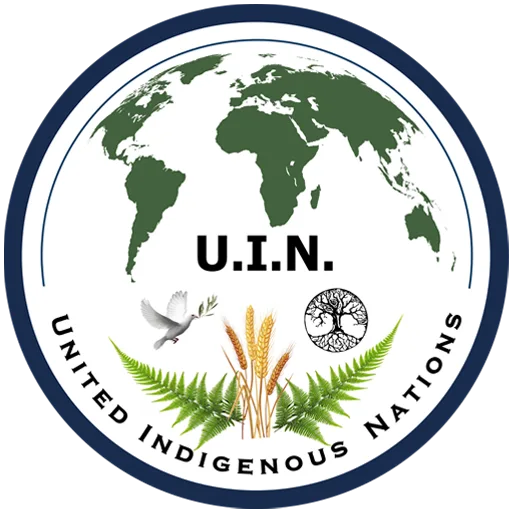Following an inner urge, desire and feeling, as well as being fully aware of the responsibility they feel towards each other and towards their ancestors, they have Germanic roots in the north. They feel connected to their ancestors, the traditional and the values embedded in them, and continue these traditions in the present, so that the ethnocultural identity can be developed and further developed.
As descendants of their ancestors through ethnogenesis and public confession, they are peaceful and do not harbor any grudges against others, but demand the rights to which they are entitled a(3).
There can be no doubt about their indigeneity. The popular opinion, mostly formed by the media, often derives indigeneity from exotic external appearances or from special lifestyles. These derivations are irrelevant to the facts and the law. Instead, the principle of descent is decisive – in terms of ethnic history and not state history. Their ancestors the Germanic tribes, the people who were divided into different tribes, were already long before the Roman colonial empire, in the northern part of the Central European area of historical time, also on the one today under the country name „Germany“
known area. They bear the responsibility for their descendants and therefore want to set the course for them so that they can look forward to a secure future full of truth, health and peace. It is precisely because of their loyalty to tradition as a conscious connection with the historical present of days gone by that has been handed down to them that knowledge and practices from the contemporary present flow into their current way of life. They combine tradition and progress for their own benefit.
The members of the indigenous people of the northern hemisphere, as already mentioned, and like many other people, descend from the Germanic tribes or tribes of the same and their ancestors (e.g. Alemanni, Suebi, Burgundians, Franks, Frisians, Goths, etc.). Autochthonous descendants of these ancestors came together and founded an indigenous people in accordance with international law.
(https://www.juraforum.de/lexikon/voelkergewohnheitsrecht)
Their people are growing continuously, because more and more people are becoming aware of their indigeneity. Since the beginning of 2022 parts of the Frisians from Germany and the Netherlands.
Precisely because people prefer to talk about what they are rather than what they are not, it seems appropriate at this point to distance them from misleading and even defamatory statements about their people that have been published in printed or electronically published newspaper articles.
They neither deny the existence of the Federal Republic of Germany nor the Republic of Austria, nor do they doubt the historically given three-element principle (people – territory – state power). They are neither violent nor prepared to use violence, but peace-loving and peaceful. They do not want to have back national borders from any past years/decades, nor revive former states/empires. In this context, it should be noted that they are sometimes referred to as „Reichsbürger“. The use of such a term is objective and alien to the law: On the one hand, through their public commitment to the indigenous people, they are not subject to any state (or empire) and do not guarantee any such (or none such). On the other hand,
Frisians are also known to this people, which, historically proven, has nothing to do with an imperial legal basis.
Therefore, the continued use of the term „Reich Citizens“ to describe them would be a blatant defamation of their indigenous identity, which is why they reject this title in every possible way! Ask yourself and listen to yourself to see if you too can hear a voice whispering to you the way back to real values, freedom and traditions…
and with the continuous assertion of its rights and the fact that the minimum number of ethnic members is not exceeded, they have automatically and legally entered into customary international law. Since then, universal customary international law has applied, defined as the source of international law.
Frisian-Germanic descendants from Germany and the Netherlands. Currently, missions exist on their territory in the Netherlands, Switzerland, Austria and Bulgaria.
As indigenous peoples, they rely on the norms, declarations and treaties of international law introduced by the United Nations in cooperation with other states and nations around the world.
The Federal Republic of Germany recently ratified ILO Convention 169 (2021 (4)). This ratification law entered into force on June 23, 2022 (5) – ILO press article. Consequently, ILO Convention 169 became part of the legal system of the Federal Republic of Germany.
Ratified international treaties are binding on the ratifying states, including Germany and, through the EU, also Austria.
A public confession is completely sufficient to become a member of a people (see e.g. B. the Saxon Sorbian Law § 1 or ILO 169 Art. 1, Paragraph 2):
https://www.revosax.sachsen.de/vorschrift/3019-Saechsisches-Sorbengesetz#p1
At the same time as the announcement of the entry into force of ILO Convention 169, further territorial missions are being set up.
of the Convention concerning Indigenous and Tribal Peoples in Independent Countries (1LO Conv. 169) by the Federal Republic of Germany on 16 June 2021.
shall enter into force in accordance with Article 38 of this Convention on 23 June 2022, 12 months after ist Ratification, in force. This creates an additional mechanism for protecting and enforcing rights.
Original by Wolfgang Johann
Write an E-Mail
